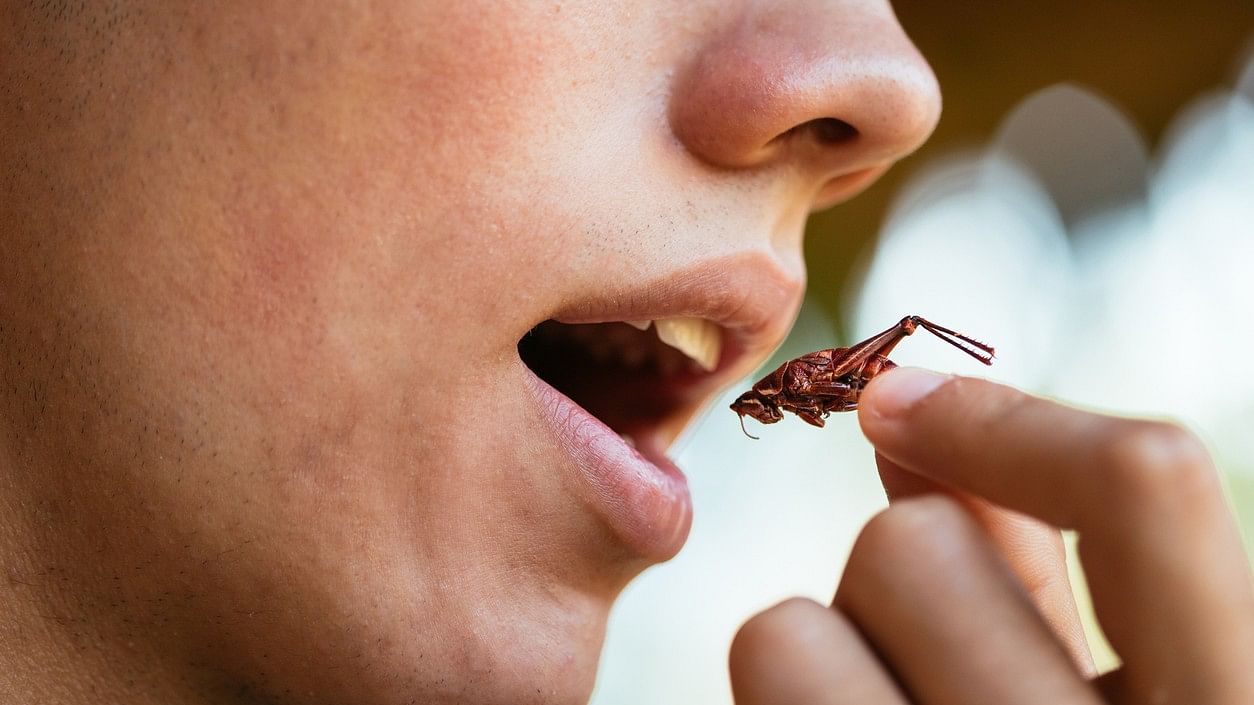
A person eating a cricket.
Credit: iStock Photo
Singapore: From glutinous rice balls crowned with juicy silkworms to crispy crickets sitting on sushi rolls, diners in Singapore may soon get to feast on creepy crawlies in dining establishments, as the city-state may allow the sale of certain insects for consumption purpose, a media report said on Wednesday.
Singapore could be allowing the sale of certain insects as food as early as next month, Channel News Asia reported, quoting restaurants and potential farms who have been informed of the latest development.
The approvals for the sale of insects for human consumption have been delayed for more than a year.
The Singapore Food Agency (SFA) first conducted a public consultation on the regulation of insects and insect products in end-2022. In April last year, the agency said that 16 species of insects, such as crickets, silkworms and grasshoppers, would receive the green light for consumption in the second half of 2023.
Earlier this year, the SFA said it is finalising the implementation details and aims to introduce a regulatory framework in the first half of this year.
“We will work closely with food business operators to ensure that they are able to meet SFA’s regulatory requirements before insects and insect products are permitted for sale as food for human consumption in Singapore,” it said.
According to the report, the legislation is also likely to be tabled in Parliament soon.
Insect suppliers said they have been briefed by the SFA, according to the report.
This development comes amid growing frustrations among businesses looking to sell insects as food. At least two insect farms have closed due to the long wait for approvals.
The farming of insects for human food and for animal feed has been promoted by the United Nations Food and Agriculture Organisation for their benefits as a sustainable form of protein.
Crickets, grasshoppers and mealworms, for instance, are rich in protein. These insects also contain antioxidants and minerals, including iron, zinc, copper, and magnesium.
Stringent protocols will be in place to ensure the insects are safe for consumption, including the need for them to be farmed in a controlled environment and not harvested from the wild to prevent the introduction of diseases, contaminants, and parasites, the report said.